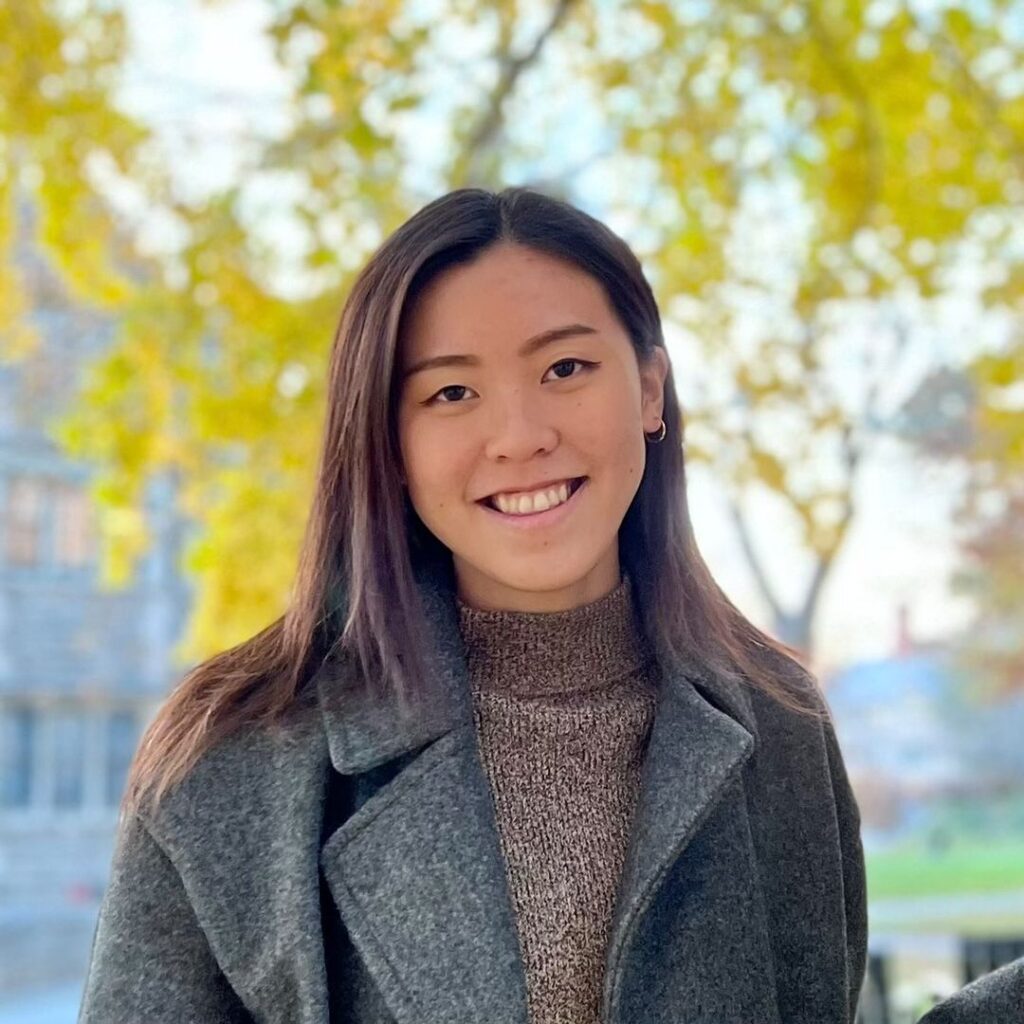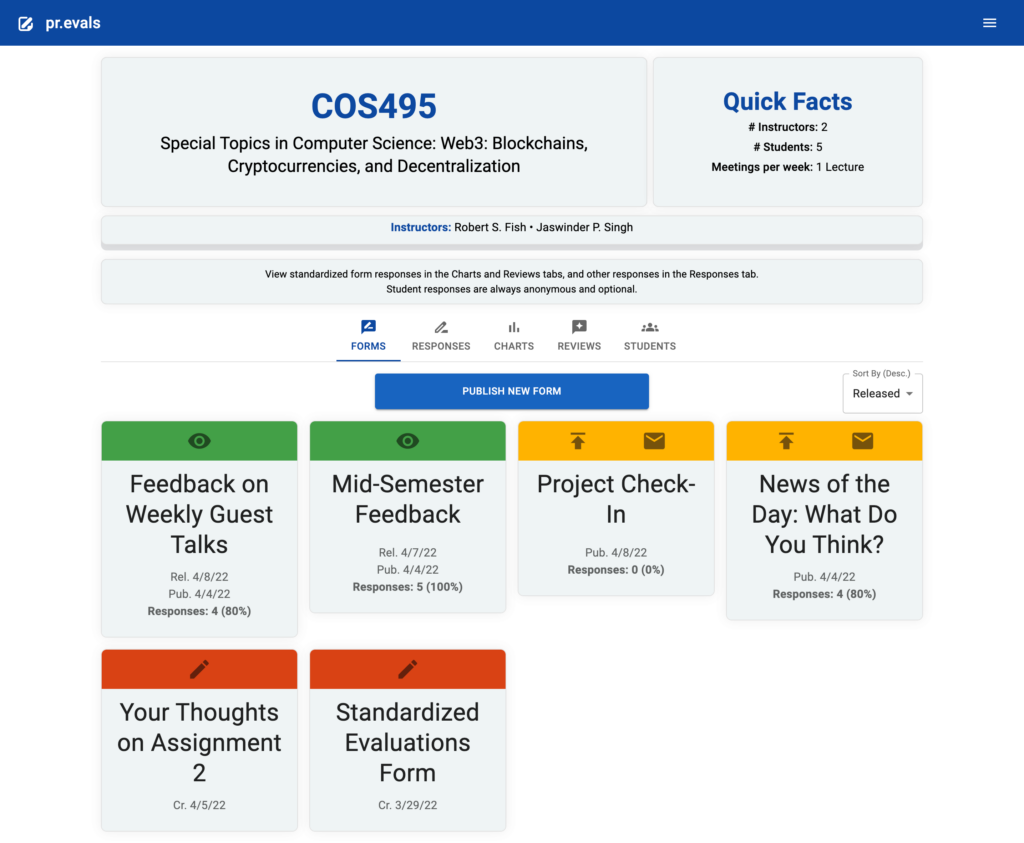Shannon Heh ’23 is currently Co-President of TigerApps, a member of KoKoPops dance team, and a member of Colonial Club
At Princeton, B.S.E.* computer science students are required to complete at least one semester of independent work (IW) during their junior or senior year. Students may either take an IW seminar, where a small group of students work on larger projects under a given theme, or a one-on-one IW, where students work and meet with their advisers independently.
Seminars had weekly meetings and provided more structure for students than a typical one-on-one project would; students were asked to choose their project ideas early and received valuable feedback through presenting and having their ideas workshopped by their peers in the seminar.
I met with Shannon Heh ‘23, a senior in the Computer Science department, to discuss her experience in an independent work seminar. Spring of her junior year, Shannon took COS IW 09: You Be the Prof, advised by Professor David Walker. Students were to produce a web-based platform, app, or tool to aid in teaching a particular topic, skill, or concept.
Alexis Wu (A): To understand your IW experience better, what was the topic of your project?
Shannon Heh (S): My project was rooted in the dissatisfaction around Princeton’s course evaluation system (the end-of-term survey students have to fill out). I surveyed Princeton students and professors and received overwhelmingly negative feedback—people were discontent with the system for a myriad of reasons.
Students complained the evaluation form was too long and that past evaluations were decontextualized; for instance, do certain students claim a course to be “easy” because they have experience with the topic? Survey participants also explained they had no incentive to fill out the form. On the administrative side, professors talked about the lack of customization for their course(s) and how most of the negative feedback was rant-like, which was draining to read.
Her final product needed to accommodate a middle-ground between students and professors’ visions for the ideal course evaluation system. The initial research step of contacting students and faculty was particularly important, because it informed her later design decisions and what her product would look like.
A: How did you go about choosing this topic, and what piece of advice would you give to other students?
S: Most of the seminar projects involved creating new course assignments for the introductory computer science courses. Another common project topic was to create a tool to learn a certain programming language or library.
I’m a TigerApps developer, so a lot of what I’m thinking about outside of coursework is how to improve the Princeton campus experience with technology. I wanted to work on something broader, something not specific to any class, but still useful for Princeton students.
My advice: don’t be afraid to think outside of the box. Think beyond what people have done previously for the seminar and communicate your ideas with your adviser.
I had a project in mind, and I talked with my professor through all the features I wanted to complete. I had even done the surveys prior to presenting my proposal, which demonstrated the need for my project.
A: Was there anything during your IW seminar that surprised you?
S: I was surprised by how enjoyable the experience of working with a partner was. The expectation is you should work on your independent work…independently. Admittedly, working with a partner was initially challenging. I asked myself, “how are we going to make our project separate enough? Would we just complete our separate tasks, or are there features we need to collaborate on?” But a partner proved to be invaluable. Since there were several features we wanted to implement, we chunked the project into sections and split the tasks between us.
We kept each other motivated and checked in on each other’s progress. I was also able to achieve much more with a partner since we could cover more ground with what we wanted to complete. It felt like a bigger accomplishment.
A piece of advice: when you’re working on your IW, JP, or thesis, have a buddy or group of friends to discuss with if your department allows it (for some independent work, discussion/collaboration isn’t allowed). It’s a great way to keep each other accountable and ensure you’re meeting deadlines. Another thing that was surprising was how short of a time-frame it is, since you have to get it done by Dean’s Date. It was challenging to finish the project, test it with people, and also finish the paper. Set goals and expectations about what you want to achieve from the start.
A: Did the experience change your perspective on what you wanted to pursue (career-wise) after graduation?
S: My project topic was already in my comfort zone—most of my prior experience in computer science and software has been in building web applications. My IW built on my existing skills and my interests, so it was a way to expand my portfolio and it really helped me hone some of these skills for my future career.
It also helped me realize what I am more interested in. From a technical standpoint, I thought I was much more of a front-end person (working with user-interface) and less backend (business and logic). But my project made me realize my interests had shifted; working full-stack (on the entire app) helped me understand that the backend is actually what I’m more interested in. It helped me pivot my focus career-wise.
* B.S.E., short for the Bachelor of Science in Engineering degree program
Interview responses have been edited for clarity and length.
—
I hope this interview provided some insight into what independent work can look like! Hearing from Shannon about how her IW project has augmented her Princeton experience and shaped her interest in her major was exciting and informative. Her suggestion of thinking outside of the box resonated with me the most, and I believe the beauty of her advice is that it is applicable to all, not just COS BSE students!
If you’re interested in getting more involved with research yourself, be on the lookout for an upcoming interview with the TigerResearch developers, who have developed a platform for students to easily sift through research opportunities and contact professors.
— Alexis Wu, Engineering Correspondent



